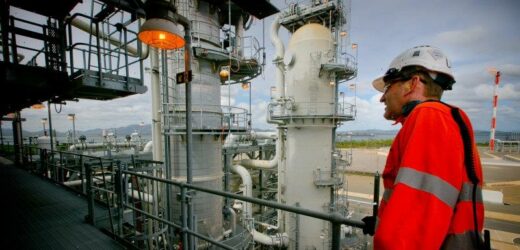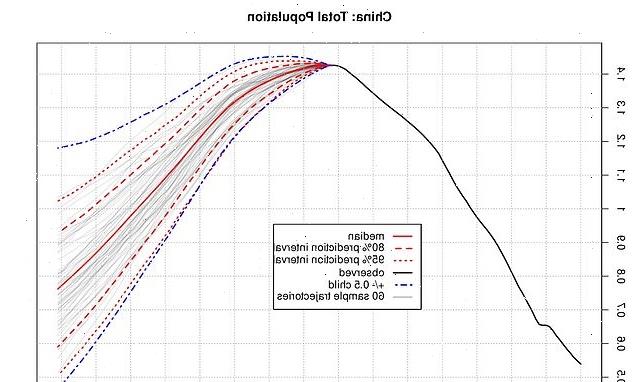Gas producers must immediately start selling cut-price wholesale gas to comply with federal rules to cap energy costs or face fines of at least $50 million, the consumer watchdog says, as it warns smaller manufacturers it may still be weeks or months until discounts flow through to their retailers.
New guidelines for gas producers on the eastern seaboard were released by the Australian Competition and Consumer Commission on Tuesday, detailing the rules they must follow to comply with the $12 a gigajoule price cap announced by the government in December.
East coast gas exporters face fines of $50 million if the breach price caps on sales of wholesale gas to Australian buyers.Credit:Bloomberg
Gas producers can be slapped with stiff fines for breaching the price caps. The ACCC can charge whatever is the higher amount – $50 million or three times the value of the company’s profit from the deal.
In cases where the ACCC cannot work out how much a company earned by breaching the cap, it will be slugged 30 per cent of its annual Australian turnover for the preceding 12 months.
The ACCC’s guidelines were released a day after complaints from small manufacturers that gas giants were withholding supply.
Industry Minister Ed Husic dismissed gas industry warnings that the market intervention would reduce investment in new projects as little more than whingeing.
“There might be some that are addicted to the Putin profits that they were making and they are going though withdrawal symptoms,” Husic told Sky News.
“But they should be under no illusion about the determination of the government to get the balance right … for not just the gas companies making the big profits but for other businesses that are dependent on gas and for households.”
Opposition finance spokeswoman Jane Hume said the government should ditch its price cap and endorsed industry warnings of potential gas shortages, calling for new policy to encourage investment in new supply projects.
“Price fixing, like a price cap, essentially leads to investment shortages and supply shortages that pushes up prices in the medium and longer term,” Hume said.
The intervention followed a global market crunch triggered by an embargo on Russian fossil fuels that sent energy prices soaring. Australian gas prices were forecast by Treasury in the October budget to spike 40 per cent by 2024, pushing bills to potentially unaffordable levels for homes and businesses.
ACCC chief executive Gina Cass-Gottlieb said now the guidance had been released, gas producers must start offering wholesale gas contracts at the new price of $12 a gigajoule, as well as complying with their existing commitment guaranteeing to satisfy domestic demand before exporting any new supplies.
“It’s a reasonable expectation. We’re looking forward to see it take effect, and we will look to use our enforcement powers if we don’t see this taking effect.”
Cass-Gottlieb said there were too many variables in the market to specify when the benefits of price caps should flow through retail sales, but warned that the ACCC would be monitoring offers to check the benefits of the price caps were being passed on to smaller firms.
The $12-a-gigajoule price cap only applies to uncontracted wholesale gas, but retail sales are exempted. That means smaller firms that don’t buy large enough volumes to tap into the wholesale market are relying gas retailers to pass on their savings in the form of cheaper deals.
“We’re anticipating that there will be some time before that flows through in that manner,” Cass-Gottlieb said.
The Australian Petroleum Production and Exploration Association welcomed the ACCC’s guidance and pointed out the watchdog has provided interim guidance with future updates pending.
“We want to ensure supply for our customers. But with fines of up to $50 million possible, we want to also ensure we are complying with these rules that, as today’s release shows, are still being defined by the government,” McCulloch said.
She expressed concern over the government’s plan to impose a mandatory code of conduct to force producers to sell wholesale gas to Australian companies at “reasonable terms”, warning that uncertainty over future regulations would stifle investment in new projects.
The Australian Energy Council, whose members include gas retailers, said it would “take time” for new price caps to feed through to retail pricing.
“Currently a complication is that producers appear to be trying to understand the full implications of the new federal laws, so they don’t inadvertently breach them and end up potentially facing severe penalties,” McNamara said. “That has created a tricky period where new contract gas has become tight.”
The government cut a ‘heads of agreement’ deal in September with producers – including Origin Energy-backed APLNG, Shell’s QCLNG joint venture and Santos’ GLNG – committing to offer 157 petajoules of new gas supply to the domestic market over the next 12 months.
Cass-Gottlieb said the ACCC will continually monitor gas producers’ behaviour so the government can enforce the heads of agreement, particularly ahead of peak seasonal demand for gas in winter.
“If there was not gas being offered for firm contracted supply, they would not be complying with the heads of agreement,” Cass-Gottlieb said.
Because the heads of agreement was struck on the premise that the 157 petajoules of additional domestic gas would be sold at market prices, not capped prices, the future of the deal has been thrown into doubt.
When the price caps were announced in December, Shell immediately suspended its process for accepting expressions of interest for the 50 petajoules of gas it had been offering under the agreement, claiming uncertainty about whether it would be in breach of the government’s new regulations.
Cut through the noise of federal politics with news, views and expert analysis from Jacqueline Maley. Subscribers can sign up to our weekly Inside Politics newsletter here.
Most Viewed in Politics
From our partners
Source: Read Full Article


